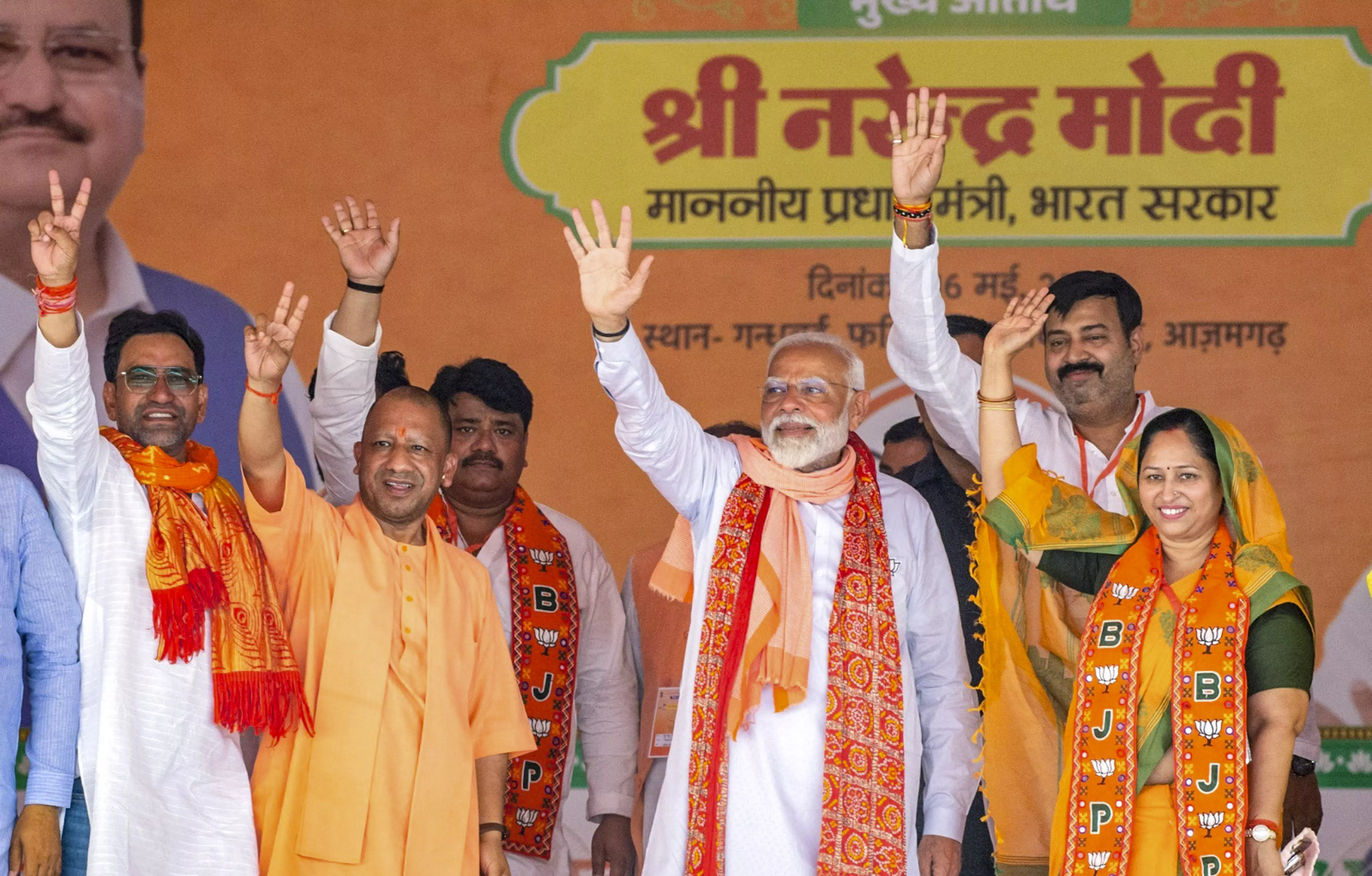
BJP finalises seat-sharing with NDA partners in Maharashtra, UP ahead of last 3 phases
The demand for OBC status by the Maratha community played a role in delaying the seat-sharing arrangement within NDA as there was no compromise on five crucial Lok Sabha seats

With little over a fortnight left for the completion of the last three phases of the Lok Sabha elections to elect a new government at the Centre, the ruling Bharatiya Janata Party (BJP) has given final touches to the seat-sharing arrangements with members of the National Democratic Alliance (NDA) in Maharashtra and Uttar Pradesh.
The streamlining of the NDA’s seat-sharing arrangement in these two states is also likely to strengthen its social engineering formula in Maharashtra where the state government of NDA is facing pressure from the dominant Maratha community which is demanding reservations as Other Backward Classes (OBC). The problem for the BJP-NDA combine has aggravated as most of the OBC community have categorically told the state government not to give OBC status to the Maratha community.
Five crucial LS seats in Maharashtra
The demand for OBC status by the Maratha community played a role in delaying the seat-sharing arrangement within NDA as there was no compromise on five crucial Lok Sabha seats. The delay in naming the candidates happened after Shiv Sena under Chief Minister Eknath Shinde was adamant that it would contest all of these five seats. The undivided Shiv Sena won the five seats of Parbhani, Nashik, Thane, Palghar and Kalyan, and Shinde did not want to share these seats with any of the NDA partners.
To broker a compromise between NDA partners and to also convince Shinde to give up his claim on some of the seats, senior leaders of the BJP decided that Shiv Sena will contest three seats while the two seats will be divided between BJP and Mahadev Jankar of Rashtriya Samaj Paksha. As per the compromise formula, Shiv Sena will contest Nashik, Kalyan and Thane while BJP will contest Palghar and Jankar was asked to contest from Parbhani seat.
“The division within the OBC and Maratha votes is a cause of worry for the NDA. As the elections have progressed, it has become clear that majority of the OBC community is voting for the BJP and NDA partners. We are confident that majority of the 48 seats will be won by NDA in this election,” Mahadev Jankar, chief of Rashtriya Samaj Paksha and NDA candidate from Parbhani, told The Federal.
The role of Jankar is important because he was instrumental in organising protests by the OBC community across Maharashtra against the Marathas for their demand for reservation as OBCs. With just 13 seats remaining in the fifth phase of elections in Maharashtra, senior leaders of the BJP have asked Jankar to campaign in all these seats and convince the OBC voters to vote for the BJP-NDA candidates.
“My role in the NDA is very clear. I have been asked to get the votes of the OBC community for the BJP and other partners of the NDA. I have already campaigned in 14 to 16 Lok Sabha constituencies for BJP and NDA partners. I will also campaign for the remaining 13 seats in Maharashtra that are going to polls on May 20, which is the last phase of elections in the state,” said Jankar.
The final touches to the NDA alliance in these two crucial states are also important because the two states together comprise 128 Lok Sabha constituencies and during the 2019 polls, the NDA under the leadership of Prime Minister Narendra Modi won 103 seats out of the 128 in these two states.
Plan for Uttar Pradesh
With more than 50 per cent of seats going to polls in Uttar Pradesh in the next two weeks, the differences over the demand for Lok Sabha constituencies by smaller parties delayed the seat-sharing arrangement between NDA partners.
The problem started after Apna Dal under Union Minister Anupriya Patel, Om Prakash Rajbhar, chief of Suheldev Bharatiya Samaj Party (SBSJ) and NISHAD party started demanding eight Lok Sabha seats from the BJP in eastern Uttar Pradesh.
The three regional parties which have considerable strength in eastern Uttar Pradesh demanded a greater number of seats. According to the demands made by these parties, Apna Dal wanted to contest at least three seats, SBSJ also wanted three and the NISHAD party wanted to contest two.
“Apna Dal is contesting on two seats. There is no point in discussing our demand for more seats because it did not happen. We have agreed to continue to contest on two seats because we are part of NDA and it is important that alliance wins and not the individual demands of political parties,” Dr. Sunil Patel, senior leader and MLA, told The Federal.
After several rounds of discussions, a compromise formula has been reached and it has been decided that Apna Dal will continue to contest on two seats, Mirzapur and Robertsganj, SBSJ will contest from Ghosi, and NISHAD party has been asked to contest from Bhadohi.
To further please its alliance partners, the BJP leadership has also promised them that at the time of Assembly elections in Bihar, these three parties will get to contest in areas adjoining the Uttar Pradesh and Bihar border. The Assembly polls in Bihar are due in November 2025.
“We are no longer talking about one or two seats. We are targeting to win all 80 seats in Uttar Pradesh and also to form an NDA government in Bihar next year,” Arun Kumar Rajbhar, national spokesperson of SBSJ, told The Federal.

